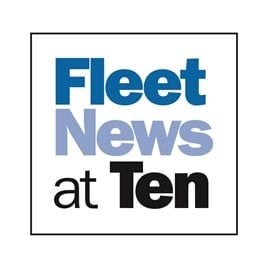Fleets are being encouraged to lodge a claim against the HMRC to get tax relief from national insurance payments paid on car allowances.
It follows a court ruling last year, which found HMRC had wrongly refused relief for two businesses Wilmott Dixon and Laing O’Rouke.
They successfully argued that car allowance payments made to its employees were ‘relevant motoring expenditure’ and therefore should qualify for relief from Class 1 National Insurance Contributions (NICs).
Both cases were heard together. Laing O’Rourke was appealing an earlier decision which had ruled in favour of HMRC, while the UK’s tax authority was appealing a previous ruling in favour of Wilmott Dixon being able to claim the relief.
After considering the evidence, two judges in the UK’s Upper Tribunal ruled in favour of the employers.
HMRC confirmed in August it would not be appealing the court’s decision, leaving it having to repay Laing O’Rourke £2.2 million in NICs from tax years 2004/05 to 2017/18 alone, and open to other claims.
Following last year’s tax ruling, Chris Connors, head of fleet and travel for the UK and Ireland at ISS, told Fleet News at 10 that the company had set up a working group involving payroll and finance to better understand whether it had a case, before seeking the advice of a tax specialist.
“We think we have got the potential make a claim, so we’re looking at putting something in for the previous six years and also this tax year, and then going forward,” he said.
“If we’re successful, then it could lead to a saving of about £40,000 per year.”
He added: “Hopefully we get our claim started and submitted to HMRC next month (February).”
Both the Wilmott Dixon and Laing O’Rouke cases followed the landmark Total People tax ruling from more than 10 years ago, when HMRC lost a case at the Court of Appeal involving grey fleet mileage claims.
Total People’s long-running legal battle related to an NI refund claim based on the difference between the HMRC 40p per mile (ppm) approved mileage allowance payment (AMAP) rate (now 45p) and the 12ppm paid by the employer plus an additional lump sum paid to the employees for using their private cars on business.
The value of the amount claimed was approximately £146,000 or around £1,000 per employee, which was subsequently paid by HMRC.
In what was the first test case following the Total People ruling, Laing O’Rourke argued in a First Tier Tribunal, two years ago, that its car allowance scheme should also qualify for relief from NICs.
HMRC argued that relief did not apply, because the payments could not be defined as relevant motoring expenditure. The court agreed, ruling in favour of HMRC.
Hearing Laing O'Rourke's appeal in the Upper Tribunal, however, two judges decided that the previous judge had “erred in adopting a narrow definition” of relevant motoring expenditure.
As a result, they allowed Laing O’Rourke's appeal, ruling the company was entitled to repayment of NICs paid in relation to car allowances.
In the case of Willmott Dixon, the judges also dismissed HMRC’s appeal. The company had previously argued that car allowance payments made to its employees were relevant motoring expenditure and should qualify for relief.
HMRC had refused to refund Willmott Dixon for NICs paid from 2004/05 to May 2014 relating to car allowance payments made by the firm.
It argued that the car allowances were earnings and not relevant motoring expenditure, but in what was a landmark ruling for fleets, the First Tier Tribunal ruled in favour of Willmott Dixon.
Last year’s ruling agreed with that original decision and also found in favour of Lang O’Rourke.
Paul Hollick, chair of trade body the Association of Fleet Professionals (AFP), believes that fleets which have a similar profile to these businesses should investigate whether they have a case.
He told Fleet News at 10: “You need the right conditions to be able to make a claim. You also need a specialist involved.
“The big four are offering advice at the moment, but there are also tax specialists in our industry as well able to offer advice.”
He explained: “There are some nuances in contract employment about what the car allowance is, and how it’s written, so you need to make sure it's done properly.”
Claims can be lodged dating back six years, to April 2017.
Watch the Fleet News at 10 debate
Definition of relevant motoring expenditure
The judges in their ruling said that the definition of relevant motoring expenditure is concerned with the nature of the payment by the employer to the employee, in particular, whether it is in respect of the use of a car.
They say if it is a payment for relevant motoring expenditure, then “one way or another there is relief” for the qualifying amount.
However, they added that the provisions do not focus on how the employee spends the money. Relevant motoring expenditure, they agreed, should be given a wide meaning which includes expected use, potential use and availability for use.
Car allowances at the construction and property firm, Wilmott Dixon were paid to employees based on a grade which was allocated to that employee. The more senior an employee, the higher the grade.
The amount paid did not depend on the number of business miles driven by an employee.
Separate business mileage payments were intended to reimburse an employee for the fuel costs of actual business miles driven.
An employee who was entitled to a car allowance at a certain grade could choose to select a car from a lower grade choice list and be reimbursed the difference in the car allowance for those grades.
HMRC had argued that it should not attract tax relief, because it was calculated by reference to grade, not by reference to actual business use, and some employees who received the allowance did no business miles.
However, the court again disagreed with HMRC. In their ruling, the judges said: “The grade of employee affected the amount of the car allowance which was based on the type of company car that an employee of that seniority would have been entitled to if they had chosen that option.
“Again, the fact that some employees did no business miles cannot affect whether those who did are entitled to the relief.
“In our judgment, the FTT (First Tier tribunal) was correct to conclude that the payments made by Willmott were ‘in respect of the use by the employee of a qualifying vehicle’.
“The payments were made to ensure that the employee had a suitable vehicle available for business use.”























John.Messore - 08/02/2024 10:18
Thanks for publicising this. It was actually me and my firm that brought the Willmott Dixon case winning at both FTT and Upper Tribunal. The law has not actually changed in 23 year and it has always been the case that relief for NIC should be given against the car allowance in respect of business mileage driven. Sadly HMRC took a different view and it needed a Court case to prove them wrong. Their guidance on the matter is still wrong and I would urge all readers to take expert advice and NOT refer to the HMRC manuals – which are still wrong.